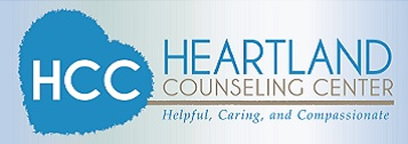
What is Anger Management Counseling?
Who should attend Anger Management Counseling?
What is the difference between Anger Management Counseling and Anger Management Classes?
How do I know if I have an “Anger Problem”?
How do I know if Anger Management Counseling is going to help?
Is Anger good or bad for your health?
What are the costs for attending Anger Management Counseling?
What is Anger Management Counseling?
Anger management counseling is designed to teach you skills to help change your thinking and behavior. Anger management counseling generally begins with weekly sessions. Sessions are then spaced further apart to allow you time to implement your new anger management skills in your daily life.
Who should attend Anger Management Counseling?
Anyone who feels their anger has caused problems in relationships with others, such as at work, with friends or family, should attend anger management counseling. Anger Management Counseling is sometimes recommended by work or is mandated by the court system. At Heartland Counseling Center, we feel that anyone who would like to improve their interpersonal skills in communication, listening, judgment and impulse control, forgiveness, managing expectations, changing self-talk, improving optimism, and learning to be more empathic could benefit from Anger Management Counseling.
What is the difference between Anger Management Counseling and Anger Management Classes?
Anger management counseling is conducted in a one-on-one setting with a counselor. In Anger Management Counseling at Heartland Counseling Center, your counselor will work with you individually to establish your anger management goals. This means that you will get the benefit of learning anger management skills that are specific to your own anger and personal triggers.
Anger Management classes are typically held in a group setting. They are not “group therapy” sessions, but rather classes with the intent of teaching skills from a pre-determined workbook.
How do I know if I have an “Anger Problem”?
- Do you notice physical signs when you get angry like feeling dizzy, nauseous, out of breath, sweating, etc.?
- Do you notice psychological signs when you get angry like depression, anxiety, guilt, shame, irritability, etc.?
- Does your anger last longer than you would like?
- Does your anger cause problems in relationships (workplace, family, friends, etc.)?
- Has your anger ruined your relationship with someone you loved?
- Does your anger happen frequently?
- Do you get out of control when you get angry?
If you answered “yes” to many of these questions, then anger is likely a problem for you and you should seek help from a trained Anger Management Counselor or other qualified professional.
How do I know if Anger Management Counseling is going to help?
The main determining factor for Anger Management Counseling to be effective is your own motivation to change. If you have little to no motivation to change, you will likely not benefit from Anger Management Counseling. If you see that your behavior is a problem and are willing to learn how to improve it, our experience has been that anger management counseling will definitely help. To put it simply-we can help if you’re willing to do your part!
Is Anger good or bad for your health?
Untreated anger can cause both physical and psychological problems. There are studies suggesting that men who have poor anger management skills are more likely to suffer a heart attack before age 55 than their peers without anger management problems.
What are the costs for attending Anger Management Counseling?
Please check out our general Counseling FAQ page for information regarding the costs of Counseling services.
(back to the top)
For other general Frequently Asked Questions about Counseling, please visit our Counseling FAQ page.
And please feel free to Contact Us or call us at (573) 803 1246 if you have additional questions or need to schedule counseling services.



